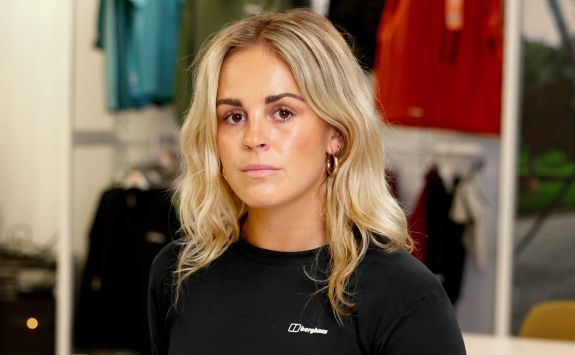Berghaus collaboration develops new legwear technology for women
New products launched today by outdoor clothing and equipment brand Berghaus have benefited from scientific testing and analysis at Newcastle University.
10 September 2025
Outdoor gear that truly adapts to the female form
New legwear technology launched today (10 September) by Berghaus has been developed in collaboration with Newcastle University researchers, applying scientific testing and analysis to address a challenge in outdoor clothing design.
ZonalAdapt is a legwear technology developed by Berghaus’s innovation space, MtnHaus, in response to a need to re-engineer women’s outdoor gear so that it truly adapts to the female form.
Market research with more than 100 women at hiking clubs, climbing circles and dance studios revealed a consistent set of issues in clothing. Whether from bloating, cycle-related changes, IBS, or fatigue, discomfort is commonly felt between the mid-torso and upper thigh, with waistbands that dig in, clothing rolling down, and chafing among the most frequent issues.
Rosie O’Sullivan, Head of New Product Innovation, Berghaus (pictured) explained: “Most gear isn’t designed to support the ergonomic, physiological or the anatomical needs of the female body.
“To tackle these issues, we wanted to work with a partner that could underpin the whole process with science, critically analyse the product, and help us make an informed, validated decision at the end.
The University’s advanced sport and exercise research and testing facilities were used to carry out biomechanical modelling and physiological analysis, helping to validate and refine the product design.

Dr Iain Spears from the School of Biomedical, Nutritional and Sport Sciences who was part of the testing said:
“This project allowed us to apply advanced biomechanical modelling to a real-world challenge. By analysing how the body responds to movement and pressure, we were able to help shape a product that supports women’s comfort and performance in the outdoors.
“We were also able to involve some of our undergraduate students in the project with Berghaus giving them practical experience at the leading-edge of design and testing for performance products.”
A project led by women for women
Margot Gandelin, Senior Designer – Apparel, Berghaus explained:
“I think designing for women is really important because historically most products have been developed for men. Women’s products have just been an adaptation of men’s products. As a designer, the collaborative working on this project has been a fantastic experience.”
Insights and Impact
The testing undertaken at the University was coordinated by the Business Development team, who work with industry to translate research into real-world impact.
Dr Bethan Sayers, Business Development Manager said:
“This project is a great example of the broad range of work we’re able to undertake with businesses, bringing academic rigour and advanced technical facilities to real world problems.
“We collaborate with innovative companies like Berghaus to help answer their research questions and deliver meaningful insights that inform product development. Ultimately, we aim to create real-world impact for both the company and its consumers.”
Rosie O’Sullivan concluded:
“What we hope to see is the science behind these new products showing up across our main product ranges in future.”
The first products from the collaboration — the ZonalAdapt Farren leggings and trousers — launched today

